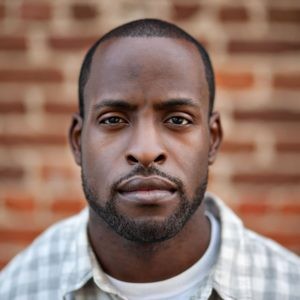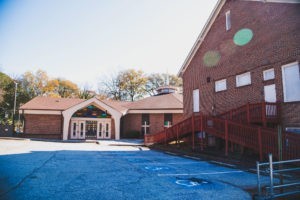“Not everything that is faced can be changed, but nothing can be changed until it is faced.” — James Baldwin

Bill Leonard
I first learned of the ministry of Rev. John Onwuchekwa, lead pastor at Cornerstone Church, Atlanta, when a friend sent me a Religious News Service article about him. Written by Maina Mwaura, it details Onwuchekwa’s public ascent in the Southern Baptist Convention as preacher, church planter and the hopeful presence of people of color in America’s largest Protestant denomination, a membership 85% white, 6% black, 3% Latino/a.
Native Texan and son of Nigerian immigrants, Onwuchekwa founded Cornerstone Baptist Church in 2015, with funds from another SBC congregation and $1,800 of his own money. When a building became available, the SBC helped the church secure a loan and in 2019 provided a grant of $175,000 for refurbishing it.
Then came Onwuchekwa’s 2020 essay, “4 Reasons We Left the SBC,” published in The Front Porch. His introduction assures readers that while he is not trying “to convince anyone,” his intent is “to put concrete words around what I’ve felt (and tried to push back against) for years” in the SBC.
Onwuchekwa expresses appreciation for the denomination’s contribution to his Atlanta congregation and the opportunities he was afforded in SBC life. Then the decision: “Nevertheless, I had to leave. The SBC liked me, but I feel like they’ve failed people like me. I’d rather give myself to serving that overlooked and under-resourced demographic than merely enjoy the perks of being treated as some outlier.”

John Onwuchekwa
The “four reasons” for the departure of Onwuchekwa and Cornerstone offer insights for the SBC and the rest of us, not only about issues of race, equity and justice, but also about the nature of the gospel itself, past, present and certainly future. My own concern here is less to castigate the SBC than to reflect on the implications of his concerns in this Black Lives Matter era in American life.
Reason one: Cornerstone Church disengaged from the SBC because of “the destructive nature of its disremembered history.” SBC slavery-advocating origins began, not by chance or being in the wrong place at the wrong time, but with intentional denominational support. Thus, “this denomination was a leader in the persecution and humiliation of Black people. They were architects, instructing its followers as to where and how to lay the bricks to build a wall of racial inequality that still plagues Black and brown people to this day.”
Onwuchekwa asserts that disremembering means the SBC failed “to own this troubled history,” evident in certain contemporary illustrations in which denominational triumphalism obscures historic racial prejudice. He concludes: “Active harm requires active repair. Equity will not be accomplished by the mere passage of time, resolutions or sweeping past wrongs under the rug. Forgiveness isn’t begotten by forgetfulness.”
“Forgiveness isn’t begotten by forgetfulness.”
Reason two: Onwuchekwa asks if the SBC finds “racial repair” to be an absolute “obligation or optional opportunity”? While many SBC-related congregations, schools and individuals now attempt to challenge racial injustices, “as a whole, the denomination is not leading to denounce racism in its walls or in our cities. … Its silence is deafening to those of us who feel the effects of this oppression every day. And those people are in my neighborhood. They are in my church.”
This failure turns the Christian obligation to work for racial equity into “a passion project that one has the option to participate in.” Worse yet, many see that obligation “as a distraction from true gospel work.” Here, I think, Onwuchekwa calls a reexamination of the gospel message itself and the obligations it places on all of us for actualizing “racial repair.”
Reason three: Cornerstone Church departed the SBC because of its “unhealthy partisanship — too closely aligned with the Republican Party.” (Here the pastor “done quit preaching and gone to meddling,” as the saying goes.)
He cites attacks on SBC agency head Russell Moore’s critique of candidate Donald Trump, Vice President Pence’s controversial 2018 address at the SBC annual meeting, and seminary president Albert Mohler’s reelection endorsement of Trump and the Republican Party as only a few of those inappropriate political loyalties. Then this jeremiad: “Hear this, the only people that don’t believe the SBC has a partisan problem are those who have some allegiance to the favored party. Everyone in the world looks and associates the SBC with the Republican Party. The minorities among you believe it to be true.”
Pastor Onwuchekwa’s plaintive cry for denominational distance from any political party appeared just before the current U.S. president declared that failure to reelect him would result in the “death of the suburbs” and the elimination of “single-family zoning, bringing who knows into your suburbs, so your communities will be unsafe and your housing values will go down.”
“Everyone in the world looks and associates the SBC with the Republican Party.”
We all know who the “who knows” folks are — people of color as civil and economic threats to the segregated sanctuaries of white America. Will SBC leaders and the rest of us condemn such race-baiting, or will the Silence of the Revs prevail?
Reason Four: Onwuchekwa’s denominational departure resulted from the SBC’s emphasis on “shallow solutions where they should be putting on scuba gear.” He writes that while the denomination “is throwing collective resources to deal with issues of race, they are aiming where a lot of predominantly white institutions aim — racial reconciliation,” a rush to unity around what the gospel can be without serious attention to what the gospel must do to make that happen.
Such racial unity may sound like an end in itself, but he warns that “it’s addressing surface-level issues instead of deep diving into the problem of race in America. Efforts like this focus on relational obstacles to unity instead of systemic injustice and inequality.”
That’s an insightful caution for Southern Baptists and the rest of us white American Christians. No genuine “racial unity” can be achieved, if ever, without confronting injustice, political expediency and the hard work of correcting enduring social, economic and, yes, religious failures.
Onwuchekwa concludes: “To solely emphasize unity without addressing the sources of disunity (i.e., racial injustice and inequality) is to confuse the goal with the pathway. If unity is the goal, then fighting for racial equality is a pathway to achieving it.”

Cornerstone Church, Atlanta
As if to further illustrate the truth of Onwuchekwa’s critique, representatives of the SBC’s North American Mission Board are now insisting that the church has “a moral obligation” to repay the grant for their building refurbishing. This demand is a sharp contrast with the refusal of the Southern Baptist Seminary to provide funding for Louisville-based HBCU Simmons University as a tangible expression of repentance for the seminary’s slavery-based origins.
So, here’s one Baptist historian’s idealistic but resolute proposal to the mission board: Instead of disremembering your denominational past, recall it with redemptive action. Cancel Cornerstone’s debt, not simply for the sake of the SBC, but for the body of Christ. Cancel it, not as charity, but as an atonement for one slaveholding pastor like Charleston’s Richard Furman and his 1822 dictum “that the holding of slaves is justifiable by the doctrine and example in Holy writ; and is, therefore consistent with Christian uprightness.”
Cancel the debt. Don’t disremember Furman — or Jesus.
Bill Leonard is the founding dean and the James and Marilyn Dunn professor of Baptist studies and church history emeritus at Wake Forest University School of Divinity in Winston-Salem, N.C. He is the author or editor of 25 books. A native Texan, he lives in Winston-Salem with his wife, Candyce, and their daughter, Stephanie.
